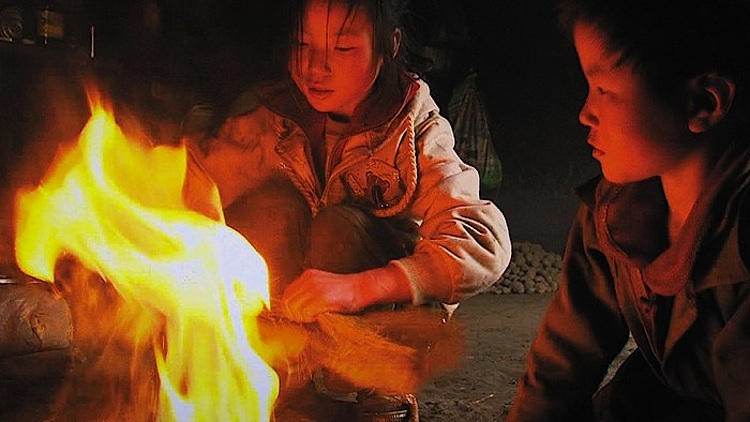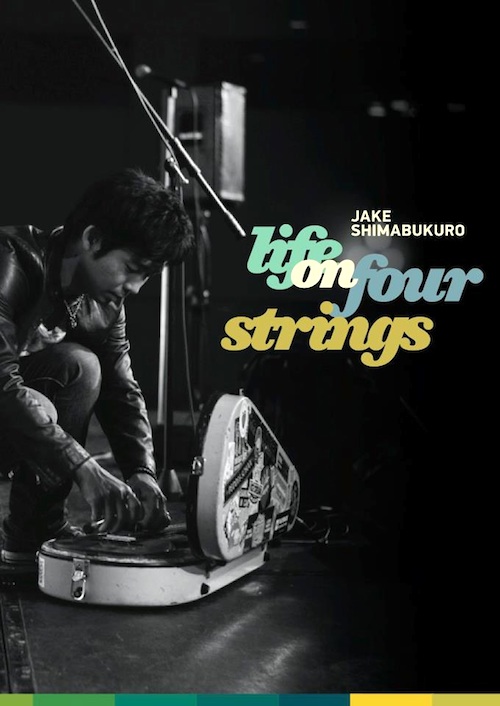By Joe Bendel. It looks like shepherding and dung collecting are the only forms of work available in tiny Xi Yang Tang village. Yet, somehow ten year old Yingying seems to do more than her fair share. The eldest of three sisters, she very definitely lives in the Other China, far removed from go-go Shanghai and the meddling Communist Party policy makers. Wang Bing documents six months of their hardscrabble existence in the simply titled Three Sisters, which opens this Friday at the Anthology Film Archives.
As the eldest, Yingying naturally assumes responsibility for her younger siblings: six year old Zhenzhen and four year old Fenfen. Their mother deserted long ago and their father is often absent, fruitlessly looking for work in the nearest urban center. Aside from meals served by a resentful aunt, they practically live like Dickensian street urchins.
Eventually, Yingying’s grandfather asserts his patriarchal authority. Believing he has arranged work for his recently returned son, he decides the two youngest will leave with their father in the city and Yingying will live with him in the village. She will go to school and he will pay her pocket money for her work in the fields. Initially, this looks like a good opportunity for her, both in terms of socialization and future opportunities. However, it soon becomes clear that tending the flock takes precedence over her studies. The results are heartbreaking.
Frankly, she ought to be subject to child labor laws, but she lives in rural China. For obvious reasons, Wang never places political considerations front and center. Yet, the implications are conspicuously obvious and explicitly stated at the annual feast Yingying attends with her grandfather. It is there that the village headman explains that the national government is intent on collecting the health insurance premiums they cannot afford. They are also determined to continue with euphemistically titled “rural development” programs to replace the villagers’ current mud-floored homes with prohibitively expensive new units. They’re from the party—they’re here to help.

Audiences of Three Sisters are guaranteed to feel maddeningly helpless. Yingying is a good kid who deserves better than her lot in life, but what can viewers do? This is China, the new global superpower, to whom our elected leaders have largely mortgaged our own futures. Nonetheless, Wang’s expose of shocking rural inequality is thorough and compelling.
Three Sisters unquestionable serves as an indictment of the government’s unfilled promises, but as a work of cinema it is profoundly intimate. Granted, patrons accustomed to multiplex fare will find the quiet pace and two and a half hour running time challenging. Yet, the simple power of Yingying’s story ought to hit anyone of good conscience on a deeply human level. Recommended for China watchers looking for a stiff shot of reality, Three Sisters opens this Friday (5/10) in New York at the Anthology Film Archives.
LFM GRADE: A-
Posted on May 6th, 2013 at 8:58pm.

